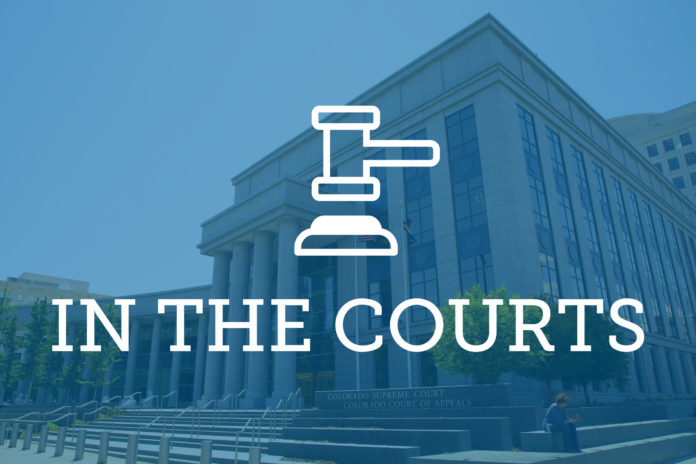
Editor’s Note: Law Week Colorado edits court opinion summaries for style and, when necessary, length.
C.M.W.R., a juvenile, contended their statutory and constitutional rights were violated and the trial court erred by not merging their first-degree arson and criminal mischief convictions. The Colorado Court of Appeals agreed the juvenile’s statutory speedy trial rights were violated, vacated the juvenile’s adjudication of delinquency and remanded with instructions to dismiss the charges filed in the case.
In April 2021, the Church of Jesus Christ of Latter-day Saints Meetinghouse in Fruita caught fire, resulting in more than $1 million in damage. A juvenile was arrested in connection with the fire. The juvenile was charged with one count of criminal mischief and one count of first-degree arson, according to the opinion
At a hearing on Sep. 27, 2021, the juvenile pleaded not guilty and requested a bench trial within 60 days. The speedy trial deadline was set at Nov. 26, 2021. The prosecutor and defense counsel announced they were available for a trial starting Nov. 22, 2021, the Monday of Thanksgiving week. After the trial date was set, the prosecutor advised the court in a hearing that some witnesses would be unavailable Thanksgiving week. The juvenile objected to setting the trial more than 60 days from the date of the juvenile’s not guilty plea.
At a hearing on Nov. 3, 2021, the prosecution formally requested a continuance. The juvenile objected. The trial court reset the trial date for Jan. 10, 2022. The juvenile filed a motion to dismiss the charges against them on the grounds their right to a speedy trial had been violated, the opinion noted.
The initial trial began on Jan. 10, 2022, but on the second day of trial, the prosecutor announced several of her out-of-state witnesses had been exposed to or contracted COVID-19 and were unable to travel. She requested a mistrial, and the juvenile objected. The trial court granted the request and continued the trial to Feb. 14, 2022. The juvenile renewed the motion to dismiss the case. At the conclusion of the trial, the trial court adjudicated the juvenile on all counts. The juvenile appealed.
The parties disagreed on which statutes applied to the determination of whether the juvenile’s speedy trial rights were violated.
The juvenile argued their rights were violated because the district court failed to apply Section 18-1-405(6)(g) of the Colorado Revised Statutes. The state of Colorado contended there was no speedy trial violation because the general good cause standard found in Section 19-2.5-904(3) was satisfied.
The appeals court held the standard for continuing a trial without the defendant’s consent set forth in Section 18-1-405(6)(g) applied to requests for continuances in adjudicatory actions against juveniles.
The appeals court also held the state failed to establish, and the trial court failed to adequately find, the juvenile’s speedy trial rights wouldn’t be violated if the trial was continued past the speedy trial deadline.
The appeals court vacated the judgment and remanded the case to the district court with instructions to dismiss the charges in this case.
Jabari Johnson, an inmate in a Colorado Department of Corrections facility, challenged the district court’s judgment dismissing his civil complaint for failure to pay a filing fee. The Colorado Court of Appeals found the district court didn’t err when it denied Johnson’s in forma pauperis motion to proceed because he is barred by the three strikes rule. The appeals court affirmed.

